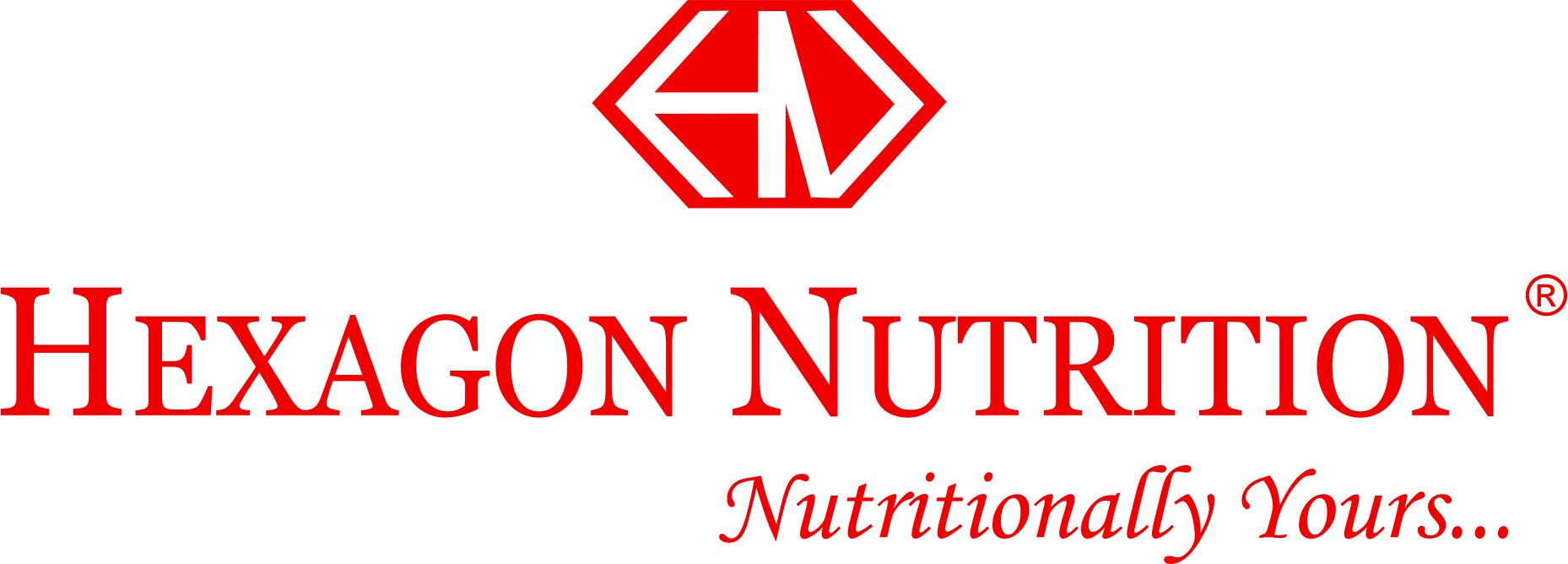By Vikram Kelkar
Managing Director
Hexagon Nutrition
Initiating the presentation, he said that “Nutraceutical is a broad term referring to food or part(s) of food that provides incremental health benefits and can be segregated under two broad heads: Functional food & beverages & Dietary Supplements.”
“The Indian nutraceutical business is expanding in leaps and bounds with evolving consumer behavior and government incentives. People’s perceptions of healthcare have shifted because of the pandemic, which has only benefited the nutraceutical sector but also exercises, a balanced diet, and the use of nutritional supplements have all become part of a healthy lifestyle. There has been increased consumption of potential nutrients and micronutrients such as vitamin C, zinc, vitamin D, and vitamin A has aided the pharmaceutical sector tremendously. In India, there has been a movement in customer preferences toward nutraceutical items.”
He further highlighted the fact that Immunity-based products will have a continued demand post-COVID-19. Targeting other factors affecting immunity can be the key in formulating immunity products such as stress, sleep deprivation, Gut health. Tapping into new dosage formats, branching beyond the usual supplements format. Few emerging formats are tea, coffee shots, nutrition bars, table spread, gummies, Cheese, Almond milk with DHA, and meal replacement products Making products more enjoyable to consume, will help boost usage frequency.
Talking about the domestic nutraceutical Industry he mentioned that “preventive healthcare has become an important line of defense during the pandemic proving the nutraceuticals sector to be a strong economic partner to the people. India’s nutraceutical market is poised to be a global leader at USD 4-5 billion. Experts and reports suggested that it will grow to approximately USD 18 billion by 2025. The population across India has begun to believe in immunity-boosting supplements and has led to a significant shift in buying patterns and market behavior. Vitamin and Zinc supplements are also those commonly prescribed by doctors during the pandemic. Making a growth path for the nutraceuticals market in India. Vitamin capsules, chewable tablets, and gummies are examples of the open-minded buying behavior of consumers of healthcare products. The second wave has seen that the nutraceutical sector has built and will continue to grow its presence in the market.”
There has been a considerable rise in health-related incidences-India recorded 5.8 million deaths owing to Non-Communicable Diseases (NCD) in 2016, constituting 61% of total death,Cardiovascular diseases, Diabetes and Cancer. Increasing health consciousness and focus on fitness -Focus on fitness and general well-being is leading consumers to intake food products that cater to their additional specific requirements such as proteins, antioxidants, vitamins, etc. Greater access through new channels- With the increasing penetration of modern forms of retail including hyper and supermarkets, e-commerce channels, etc., the distribution landscape for functional foods & beverages is changing rapidly, he further added.
A greater number of non-grocery retailers, such as drugstores, mass merchandisers and retail chains, etc. are expanding their selection in the food supplement space. Under penetrated markets-Penetration of functional F&B remains significantly lower when compared to developed economies of the world providing a significant room for opportunity. The global nutraceutical market size is expected to grow at a CAGR of approxiamtely 8%.
The growing geriatric population, increasing healthcare costs, changing lifestyles, food innovations, and expectations regarding their higher prices have aided the overall growth of the nutraceuticals industry. It has been reported that nine out of ten adults consume 55% minerals and over 50% vitamins in their daily diets.
The Asia Pacific accounted for the major market share of 31.01% in 2019 and is likely to maintain its lead over the forecast period. Rising levels of disposable income, changing lifestyle, and shift in preferences for healthier dietary intake in emerging economies are expected to drive the demand for nutraceuticals in the Asia Pacific. Brazil, China, and India are likely to expand at the fastest CAGR over the forecast period. The high cost of nutraceutical ingredients is expected to restrict the growth of the global nutraceutical ingredient market during the forecast period.
“Because nutraceutical compounds are extracted from natural resources using highly sophisticated technology with excellent selectivity, they are more expensive than APIs (active pharmaceutical ingredients). Soon after the COVID-19 outbreak, consumer focus has shifted towards the prevention of diseases and consequently, the demand for nutraceuticals has gone up. India registered a 20% increase in demand for nutraceuticals in 2020 owing to increased prescriptions from doctors amid the ongoing pandemic”, he shared.
He also shared that, The Food Safety and Standards Authority of India had notified the Food Safety and Standards (Health Supplements, Nutraceuticals, Food for Special Dietary Use, Food for Special Medical Purpose, Functional Food and Novel Food) Regulations, 2016 in the Gazette of India in 2016.
These regulations will apply to foods covered under the following categories:
● Health Supplements
● Nutraceuticals
● Food for Special Dietary Use (FSDU)
● Food for Special Medical Purpose (FSMP)
● Food with added Probiotic ingredients
● Food with added Prebiotic ingredients
● Specialty Foods containing Plant or Botanical Ingredients
Furthermore, he elaborated that the pandemic is also a foundation stone of the start of the end of substandard nutrition, invalid claims, and smart marketing claims phrases that potentially misled the consumers. Pandemic has highlighted the rightful use of nutraceuticals as a preventive cure and going forward, the global nutraceuticals industry is expected to get its rightful place in the global healthcare and medical space, with significant growth in the overall market.
The Government approved a PLI (i.e. Production Linked Incentive) scheme for the pharmaceutical sector, entailing an outlay of Rs 15,000 crore. Extending the PLI scheme support to the nutraceuticals sector as well will certainly boost research, innovations, and clinical trials allowing more home-grown patents and products to foster. PLI scheme is an excellent incentive to revive the manufacturing sector in India. While we associate it with Atmanirbhar Bharat, an important aspect to consider is the export potential that can be tapped into through this scheme.
Mr.Kelkar strongly believes that”the best method of overcoming obstacles is the team method”
Every stakeholder and policy maker should work together to make it possible
Nutraceuticals are likewise subject to significant taxes in India. Nutraceutical items and other health supplements are subject to a nearly 18 percent tax, making them costly. Taxes might be as high as 28% in certain of the categories.
The FSSAI has hinted at legislation to bring nutraceutical sector norms up to worldwide standards, allowing new entrepreneurs to make a splash in the field. In addition, there is now an Ayush ministry as well as another regulating agency for nutraceutical and FMCG items. Nonetheless, the Union Budget 2021 highlighted a few initiatives to strengthen healthcare and infrastructure for a self-sufficient India, including programs and opening doors for new healthcare collaborations.
Regardless of the changes and safeguards in place, the nutraceutical industry requires its own regulatory body, code structure, and research and clinical trials to grow and contribute significantly to the healthcare sector.” He concluded.
Nutritional Therapy in COVID-19 Management
21st Sept 2021 | 11:10 am
Dr. Nikhil Kelkar,
Group Jt.MD,
Hexagon Nutrition
-
He shared a 360-degree perspective on Nutritional therapy in Covid Management. He said that “since the outbreak of the coronavirus pandemic, people all over the world have grown more conscious of their health and lifestyle choices. Appropriate nutrition intake, which is primarily derived from the food we eat during the day, is one of the most important aspects of a healthy routine. Only our bodies’ immunity will protect us and aid in the recovery process through these difficult days of COVID-19. A healthy diet and regular exercise are essential for developing a robust immune system.”
-
Highlighting the buzzword in today’s times – Immunity he also added that, “The immune system defends the host against harmful microorganisms (bacteria, viruses, fungi, parasites). The immune system has developed to incorporate a variety of specialized cell types, communication molecules, and functional responses to deal with this wide range of threats. The immune system is continually on the lookout for threats, but when a person becomes sick, it becomes even more active. This increased activity is associated with an increasing rate of metabolism, which necessitates energy sources, biosynthesis substrates, and regulatory molecules, all of which are supplied from the diet.”
-
Vitamins A, B6, B12,folate, C, D, and E, as well as trace minerals zinc, copper, selenium, and iron, have been shown to play important roles in boosting the human immune system and lowering infection risk. Other vital nutrients, including vitamins, trace minerals, amino acids, and fatty acids, are also necessary.
-
Each of the minerals listed above has an antibacterial and antiviral function to play, although zinc and selenium appear to be especially crucial for the latter. Individuals should consume appropriate amounts of critical nutrients to boost their immune systems and aid in the fight against infections if they become ill, he further added
-
He also highlighted the complex human gut and its functionality. The gut microbiota aids in the immune system’s education and regulation. COVID-19 describes gut dysbiosis, which is a symptom of numerous disorders, including infectious diseases. Dietary approaches to a healthy microbiome can help the immune system as well. A severe infection of the respiratory epithelium can cause acute respiratory distress syndrome (ARDS), which is characterized by a cytokine storm, which is characterized by excessive and harmful host inflammation, he further added.
-
Keeping in mind the current situation he said that, “Fruits and vegetables, which are high in vitamins, minerals, and fiber and are beneficial for immunity, are especially crucial during pandemic situations. With stay-at-home, work-from-home, and quarantine becoming commonplace, many of us are using the coronavirus pandemic as an excuse to eat unhealthy foods and avoid exercising. This is risky because, during a pandemic, remaining healthy and fit is even more crucial.”A healthy, well-balanced diet keeps the immune system strong and helps to prevent disease. Diet, exercise, and health are all linked and have an impact on our physical, emotional, and social well-being, he further added
-
Putting micronutrients in the spotlight he added further that, “Many people, however, suffer from vitamin deficiencies as a result of industrialization and the resulting lack of nutrients in the soil, as well as bad diet choices. Supplementing with particular minerals, vitamins, and herbs have been shown to help our immune systems and promote longevity, according to research.
-
ImmunoNutrition formulas are good enough to incorporate specialized medical nutrition for boosting immunity. These products are a complete immunonutrition formula enriched with L-Arginine, Omega 3 fatty acids, RNA nucleotide, whey protein concentrate, and hydrolysates.”
-
During the pandemic sedentary lifestyle, increases in high-fat high sugar high salt foods have increased the incidence of metabolic syndrome which is a deadlier pandemic than the Covid-19 virus. The coronavirus is significantly less deadly than uncontrolled hyperglycemia in the bloodstream. Diabetes affects over 400 million people globally. And the hidden plague is spreading. According to data given by the International Diabetes Federation (IDF), diabetes complications claimed the lives of (an estimated) 4.2 million people in 2019. That’s about three times the number of deaths caused by COVID-19.
-
Nutrition therapy has emerged as important for ICU patients suffering from COVID 19. ICU nutrition care that is optimized Maintaining GI tract function, immunological responses, and avoiding severe muscle mass and function loss is critical for COVID-19 patients.
-
The latter, like any other ICU patient, is critical to promoting short- and long-term recovery. Dedicated nutrition studies in COVID-19 patients are now needed to improve our understanding of the disease’s metabolism and alter the nutrition support strategy, he concluded.



